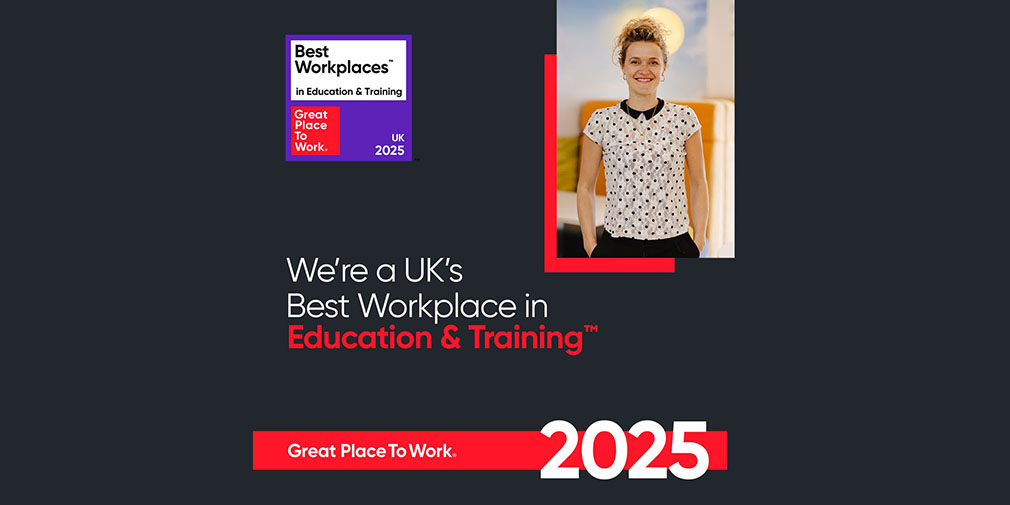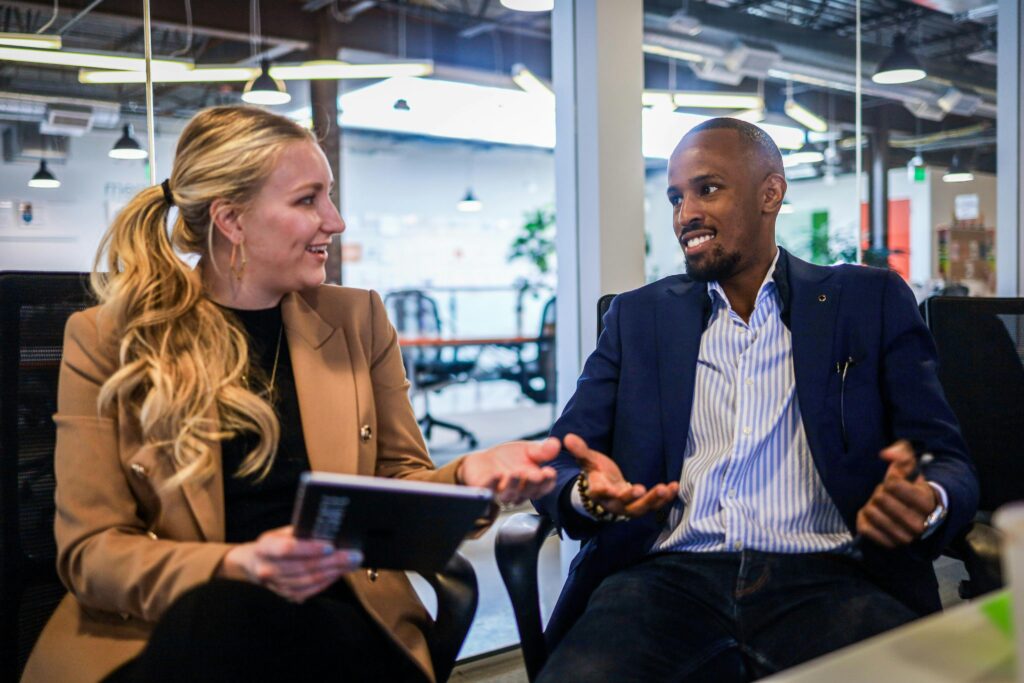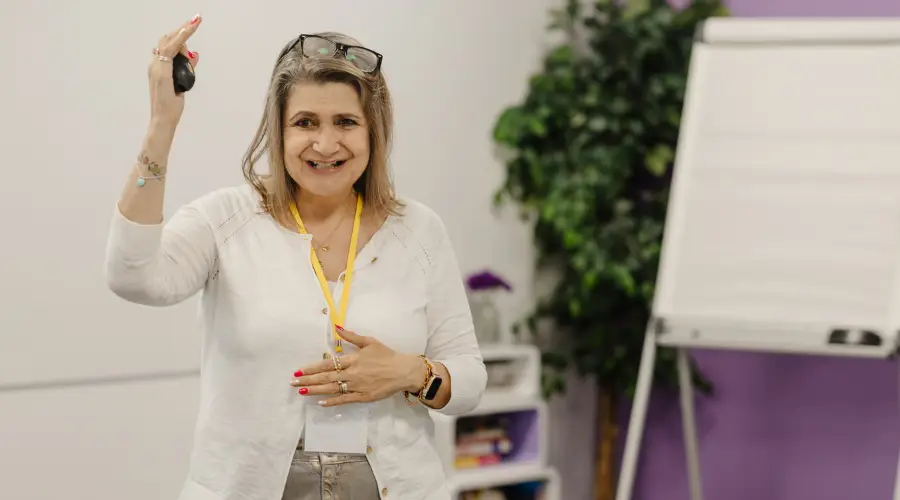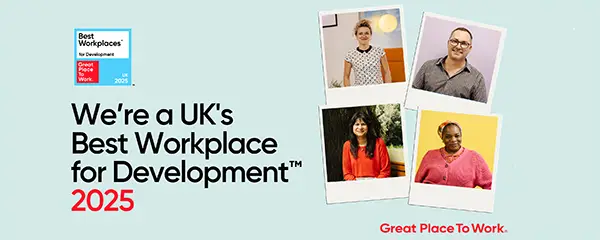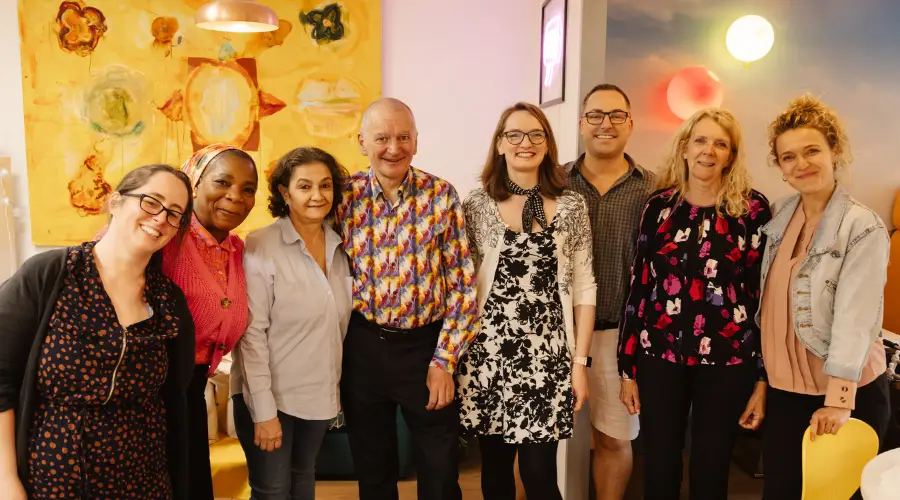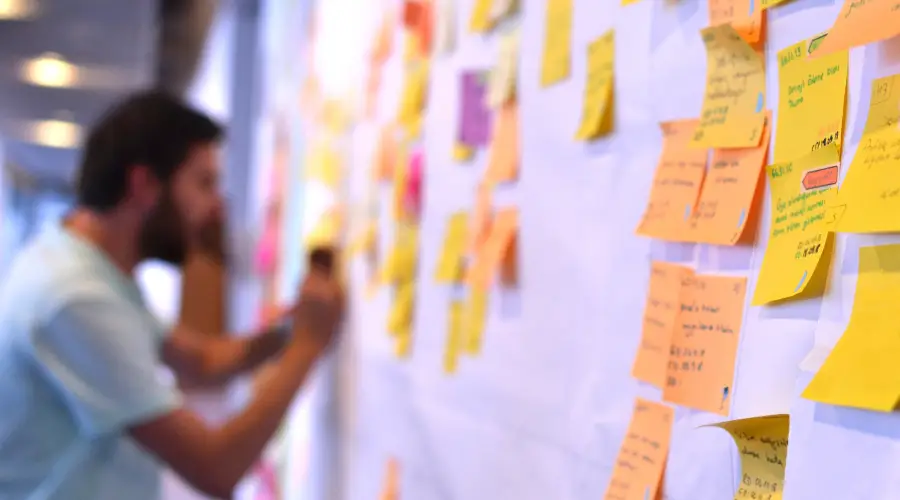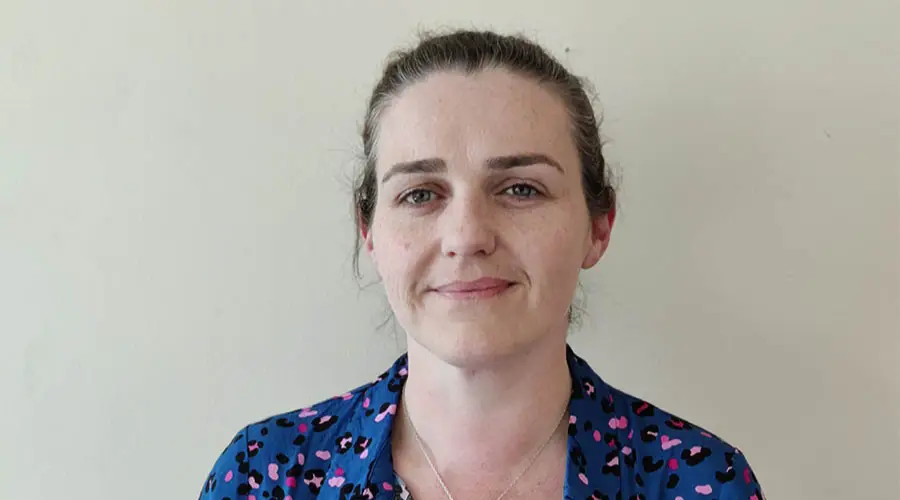Those amazing figures are despite freezing council tax for ten years. “I know how hard that tax can be on people on low incomes,” she explains. “It is too easy to just increase it.
“In the first year we thought it was tough when we had to cut £10 million. The next year it was £37 million.”
They introduced the Wigan Deal. It spelled out ‘our part’ (keep Council Tax low, cut red tape, help communities to support each other, listen) and ‘your part’ (recycle more, be healthy, protect children and the vulnerable, tell us if we get it wrong).
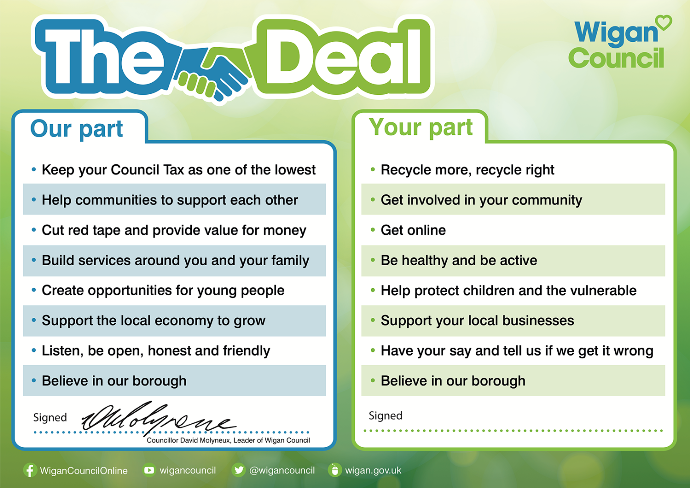
One example was giving council assets back to the community: libraries, community centres, bowling greens, parks — given to friends groups “who knew had to look after them better than we did, who had the connections.” The council provided money and practical help.
They gave two swimming pools to local swimming clubs. “Our politicians were very concerned about whether they would be able to run them. But within a few months they were making a profit (where we had been making a loss), because the people involved knew the local community, they knew how to get people through the door.”
Another example was that “we would assess people, refer them, put them into the ‘best provision’, such as a day centre or residential care. But we weren’t having conversations on what they enjoyed doing. It was really expensive but the outcomes weren’t great, they weren’t happy.”
Involving Hilary Cottam (who recently wrote the book Radical Help), they set up integrated neighbourhood teams. They set up 7 integrated place-based schemes, based on 30,000 — 50,000 residents and getting all the different agencies (council, NHS, Police, etc) working together to identify who needed support.
“The key is to think of citizens as the assets in our community and build up their strengths.”
In one area they identified 25 ‘problem’ families whose children were on the edge of being taken into social care and mapped out what the Council had been doing.
“We had spent a huge amount of resource over the last ten years to no gain at all for the families. We were spending between £250,000 and £500,000 on each family per year, over the various agencies. To check on the family, to transact with them, spending 80% of the time on continual assessment, but not building a relationship with them.
“We changed the term to ‘confident families’, identified a key worker who linked in with family and tried to build on the family’s strengths. With remarkable results.”
They also got rid of the hierarchy in the Council and flattened the structure. There was a massive amount of listening from the leadership and politicians, to front-line staff. “Systematic listening to our people, we did it every two weeks for eight years.”
They empowered front line teams to do what was the right thing for communities. They got rid of a lot of assessment and referral processes. “We made it possible for our people to do what they know is the best thing for that person, without needing levels of approval.”
They taught an ethnography course to all the staff to vastly improve listening skills. “If somebody went into fix a leaking tap, they would look out for signs of other problems too.”
They gave £13 million to 500 new community projects. Not top down but asking ‘what do you need from us, together?’
“We also stopped doing things that didn’t work. We reduced the number of buildings, often giving them to the community. We reduced the number of processes and we developed values-based recruitment, based on three core values: Courage; Be positive; Be accountable to local people.
“We wanted to support residents to live their best lives.” Rather than the whole range of outcomes that the government requires, Wigan Council chose to focus on three: healthy life expectancy; staff satisfaction and resident satisfaction.
The single most important was healthy life expectancy. In the most deprived wards, women’s life expectancy was only 50 years. Over the period of The Deal, they improved that by 7 years.
“And resident satisfaction saw an increase of 59%, thanks to the Council listening more.
“We would also go into a community and have a week of action, involving council staff, police and NHS workers. There would be health checks and liver scans. There would be clean ups, tidy ups, you’d get to meet your local councillor.
“We banned pilots and test projects. They often just get parked, even if successful. After lots of listening, we knew what need to be done. It’s easy to do projects. It’s hard to create a social movement.”
Have they had other councils come to see them? “To be honest, we had more people coming from Denmark, than from other Councils in the UK.”
Want to hear more from Donna?
Join us for the 2022 Happy Workplaces Conference on 12th May.
As well as Donna Hall, we are very excited to welcome best-selling author Liz Wiseman, Cemal Ezel, CEO of Change Plus, and Marwa Farouq, Global Head of Operations at Teach for All.
Plus, save 25% with a special discount until the end of March.


